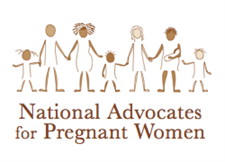Despite the extraordinary efforts of an amazing coalition, Tennessee Governor Bill Haslam signed SB 1391 into law on Tuesday, April 29, 2014.
As a result, Tennessee has become the first state to ignore the warnings of medical and public health experts and pass a law criminalizing adverse pregnancy outcomes, making those who become pregnant subject to separate and unequal laws.
We allowed ourselves to hope that the Governor would do the right thing, but instead the bill will go into effect this July.
Now National Advocates for Pregnant Women (NAPW) needs your support to continue the fight - to help challenge this law, to challenge the arrests that have already happened and will continue to happen and to explain why this law should be repealed and why pregnant women and parents should be valued, not arrested. 
We also need your support to build on the many remarkable and positive things that have come out of this effort. For example, a coalition led by reproductive justice organizations, including NAPW, SisterReach, Healthy and Free Tennessee, Young Women United, SisterSong, with the powerful support of RH Reality Check, exposed the appalling harm this law will do. This coalition rallied unprecedented local, national, and international opposition to the use of criminal laws to address pregnancy outcomes and drug use by pregnant women.
While The New York Times has run numerous stories over the last 25 years covering the arrests of pregnant women, our efforts this time led to an editorial against the Criminalization of Expectant Mothers.

More than 11,000 people signed a petition asking the Governor to veto the law. When the petition was hand-delivered to the Governor by local coalition members, it made the front page of The Tennessean.
Numerous individuals and organizations wrote letters, made phone calls, tweeted, and emailed to bring the dangers of this law to public attention. Groups, including the American Academy of Pediatrics, International Doctors for Healthier Drug Policy, and National Perinatal Association, submitted letters asking Governor Haslam to protect the health of Tennessee families by vetoing the bill. NAPW sent its own letter and joined more than 25 reproductive rights, health, and justice organizations in communicating our opposition to the law and insisting that all families have access to the health care they need. Drug policy reform groups, including Law Enforcement Against Prohibition joined reproductive rights groups in speaking out against this law.
Over the past few years, NAPW has shared our insights with the White House Office of National Drug Control Policy (ONDCP). So we were particularly pleased when acting director of ONDCP Michael Botticelli visited Vanderbilt's Children's Hospital, telling The Tennessean, "What's important is that we create environments where we're really diminishing the stigma and the barriers, particularly for pregnant women, who often have a lot of shame and guilt about their substance abuse disorders."
Although this law has a built-in 2016 expiration date, we feel that this is too long for Tennessee families to be subjected to a counterproductive, unconstitutional, and dehumanizing law. NAPW stands with Tennessee; we will continue to fight.
|